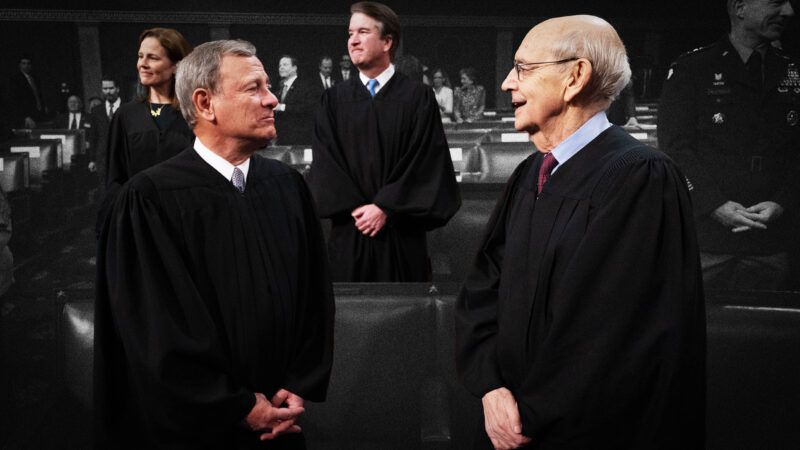School Choice and Religious Liberty Advocates Just Won Big at the Supreme Court
States may not "exclude some members of the community from an otherwise generally available public benefit because of their religious exercise,” says SCOTUS.

The U.S. Supreme Court delivered a big win for both school choice and religious liberty advocates in 2020 when it held, in Espinoza v. Montana Department of Revenue, that if a state provides educational subsidies that help parents send their children to private schools, the state "cannot disqualify some private schools solely because they are religious."
In a 6-3 decision issued today, the Court repeatedly invoked Espinoza while delivering another big win for the school choice and religious liberty side. At issue in Carson v. Makin was whether Maine's tuition assistance program violates the Constitution by excluding private schools that offer "sectarian" education. In an opinion by Chief Justice John Roberts, the Court found the state to be in constitutional error.
"There is nothing neutral about Maine's program," Roberts wrote, joined by Justices Clarence Thomas, Samuel Alito, Neil Gorsuch, Brett Kavanaugh, and Amy Coney Barrett. "The State pays tuition for certain students at private schools—so long as the schools are not religious. That is discrimination against religion. A State's antiestablishment interest does not justify enactments that exclude some members of the community from an otherwise generally available public benefit because of their religious exercise."
Writing in dissent, Justice Stephen Breyer, joined by Justices Elena Kagan and Sonia Sotomayor, charged the majority with sidestepping the First Amendment's prohibition against the government "mak[ing] [any] law respecting an establishment of religion." In Breyer's view, "Maine wishes to provide children within the State with a secular, public education" and nothing in the First Amendment prevents the state from doing just that. "The Religion Clauses give Maine the right to honor that neutrality," Breyer maintained, "by choosing not to fund religious schools as part of its public school tuition program."
Today's result comes as no big surprise. During the December 2021 oral arguments, Chief Justice Roberts pressed Maine's chief deputy attorney general to explain why the state's approach did not amount to unconstitutional religious discrimination. It seemed fairly clear from their verbal sparring that the answers given by the state's lawyer were never going to persuade a majority of the Court.


Show Comments (159)